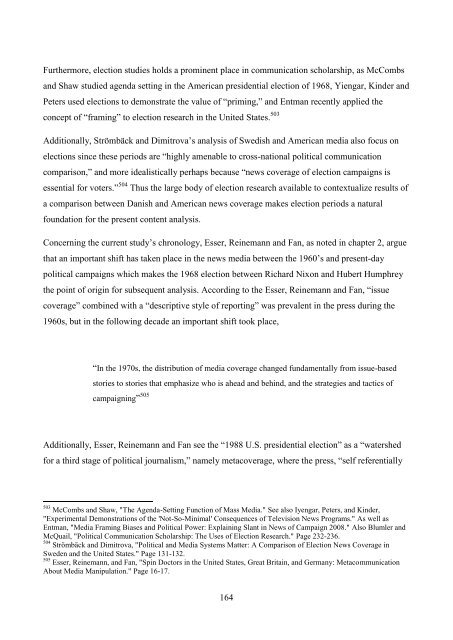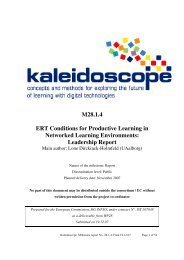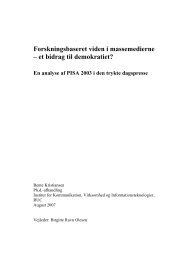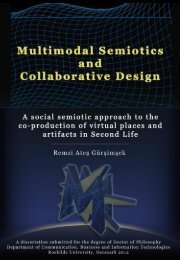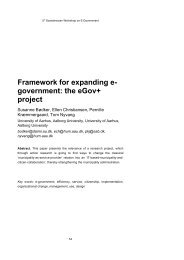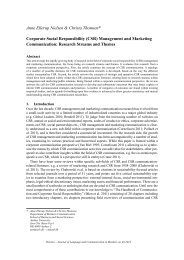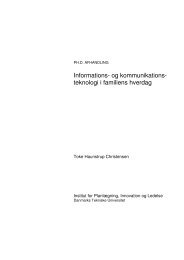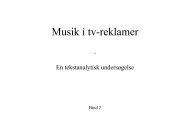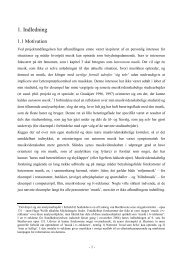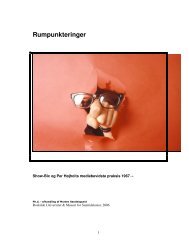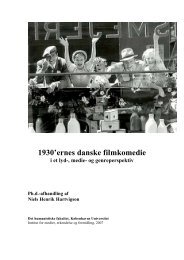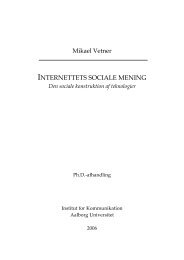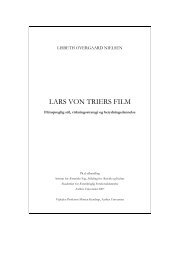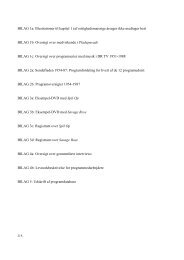The Jeremiad Over Journalism
The Jeremiad Over Journalism
The Jeremiad Over Journalism
Create successful ePaper yourself
Turn your PDF publications into a flip-book with our unique Google optimized e-Paper software.
Furthermore, election studies holds a prominent place in communication scholarship, as McCombs<br />
and Shaw studied agenda setting in the American presidential election of 1968, Yiengar, Kinder and<br />
Peters used elections to demonstrate the value of ―priming,‖ and Entman recently applied the<br />
concept of ―framing‖ to election research in the United States. 503<br />
Additionally, Strömbäck and Dimitrova‘s analysis of Swedish and American media also focus on<br />
elections since these periods are ―highly amenable to cross-national political communication<br />
comparison,‖ and more idealistically perhaps because ―news coverage of election campaigns is<br />
essential for voters.‖ 504 Thus the large body of election research available to contextualize results of<br />
a comparison between Danish and American news coverage makes election periods a natural<br />
foundation for the present content analysis.<br />
Concerning the current study‘s chronology, Esser, Reinemann and Fan, as noted in chapter 2, argue<br />
that an important shift has taken place in the news media between the 1960‘s and present-day<br />
political campaigns which makes the 1968 election between Richard Nixon and Hubert Humphrey<br />
the point of origin for subsequent analysis. According to the Esser, Reinemann and Fan, ―issue<br />
coverage‖ combined with a ―descriptive style of reporting‖ was prevalent in the press during the<br />
1960s, but in the following decade an important shift took place,<br />
―In the 1970s, the distribution of media coverage changed fundamentally from issue-based<br />
stories to stories that emphasize who is ahead and behind, and the strategies and tactics of<br />
campaigning‖ 505<br />
Additionally, Esser, Reinemann and Fan see the ―1988 U.S. presidential election‖ as a ―watershed<br />
for a third stage of political journalism,‖ namely metacoverage, where the press, ―self referentially<br />
503<br />
McCombs and Shaw, "<strong>The</strong> Agenda-Setting Function of Mass Media." See also Iyengar, Peters, and Kinder,<br />
"Experimental Demonstrations of the 'Not-So-Minimal' Consequences of Television News Programs." As well as<br />
Entman, "Media Framing Biases and Political Power: Explaining Slant in News of Campaign 2008." Also Blumler and<br />
McQuail, "Political Communication Scholarship: <strong>The</strong> Uses of Election Research." Page 232-236.<br />
504<br />
Strömbäck and Dimitrova, "Political and Media Systems Matter: A Comparison of Election News Coverage in<br />
Sweden and the United States." Page 131-132.<br />
505<br />
Esser, Reinemann, and Fan, "Spin Doctors in the United States, Great Britain, and Germany: Metacommunication<br />
About Media Manipulation." Page 16-17.<br />
164


